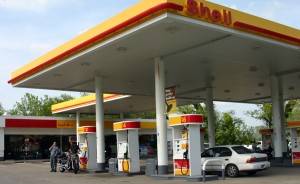
Gas prices are starting to creep up and some experts are suggesting that they could exceed $5 per gallon.
Let the hysteria begin. As if on cue, just as gasoline prices crested $3, the whiners started complaining that “something has to be done.”
Fueling the fire this week was a former Shell Oil executive who predicted $5 gasoline as soon as 2012. John Hofmeister, now head of Citizens for Affordable Energy, said worldwide demand for oil would drive up the price of gasoline to unheard of levels, according to ABC News. Unheard of, at least, for spoiled residents of this country.
The histrionics on a local radio station seemed to be emblematic of the issue. “We’ll figure something out by then” says one talking head. Within a year? After years of watching the problem fester like an open sore?
Maybe the government should subsidize gasoline or employers will step up to give us all raises so we can pay for these high gas prices, says her partner. Seventy-five dollars to fill a 15-gallon tank. No one will be able to afford to fill their tank.
A listener texted in with one solution: Shop, work and worship in your own neighborhood, but the hosts poo-pooed the idea. Because jobs are so hard to come by, many workers have been forced to accept a long commute.
Well, you could sell your house and move closer to the office. Oh, but wait, you probably owe more on your house than it is worth. OK, next idea, please.
Maybe fuel prices that more closely resemble those in the rest of the world might finally help make public transportation a reality here.
The fact is, 2008 actually gave us a glimpse of the new reality for fuel prices. We just didn’t want to admit it. Demand for fuel was growing, causing fuel prices to rise dramatically, which helped lead to the Great Recession, which of course, depressed gasoline prices.
But now the world economy is starting to heat up and demand for oil is growing exponentially in the emerging markets of China and India. Gasoline prices are going up. Get used to it. The only question is how high they will go.
In a country that is already drowning in debt, counting on government assistance to help pay for your bill at the gas pump might not be the best plan.
What will help is for the country to truly embrace the new wave of electric vehicles that are starting to hit the market. Listening to uninformed pundits such as our crack radio hosts, it’s obvious that real auto experts, journalists and even enthusiasts need to do a better job explaining how these things work to those more interested in telling their friends on twitter that they just ate a ham sandwich than learning something new.
If you’re reading this, that means you. People who know the difference between a piston ring and a ring gear need to explain to their friends how cars like the Chevrolet Volt work. Tell your friends why battery costs will come down and how the technology will improve, just as those things have happened with virtually every other technology ever invented.
Rising gas prices are actually the best thing that could happen to the fledgling electric vehicle industry. They will force consumers to consider new ideas in transportation. As more people buy in, there will be more money to develop even more efficient solutions.
With gas prices of less than $3, cars such as the Volt and Nissan Leaf don’t make much sense. Start paying $5 for gasoline and they start looking a lot better.
Our whiny radio jockeys are correct on one thing. Something will have to change. But instead of solving the country’s personal mobility challenges with government subsidies, a better approach would be changing the way we look at the problem. Maybe it’s time to consider a smaller vehicle or looking into one of the new breed of cars that are powered by alternative energy solutions.
Or maybe we just hold out for a raise.

Get a small diesel hatch. Forget about electric for now. Demand will not decrease prices – rare metals that go into batteries will become prohibitively expensive and we will never “break even” on electric cars without heavy gov’t subsidies. Grow up journalists. Energy has to come from somewhere and it will be coal for electricity. We cannot go on forever consuming it. We just need to give up our 15 mpg lifestyle and say hello to 60 mpg turbodiesels.
“Comments off” on the other article claiming eAssist is a non-hybrid full size solution for 40 mpg. Its a hybrid with 37 mpg, regenerative braking, electric motor assisted power, its just not a series hybrid but a parallel one. Must be nice writing deceptive headlines.